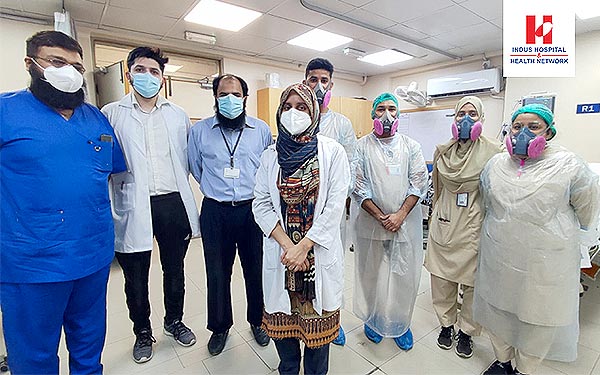HOLDING ON BY A THREAD – Shaman Ali
-
by
admin
The Emergency Room (ER) is one of the busiest places in an entire hospital, where the mood of the room can change at any given moment. The selfless doctors and staff responsible for the patients remain on their guard at all times, and always prepare for the worst. There is no line or appointments for patients who arrive in critical condition at the ER, and doctors are forced to not only diagnose the patient but also try to save them within minutes of their arrival. It’s a grim environment, and one that requires enormous self-control and discipline to be a part of.
One cold day in February, Shaman Ali found himself to be patient of the ER.
A laborer who hailed from Ranipur, he migrated to Karachi when he was in his late teens to help support his family. He was the primary breadwinner and worked hard to take care of them financially. They hailed from a modest background, and in spite of the financial difficulties they faced, they shared a strong bond with one another.
During one of his shifts at work, Shaman was carrying iron rods on a construction site. While placing them down, he placed his hand on an electric pole while trying to balance himself up. The pole was a naked wire and carrying a tremendous amount of electricity. The jolt that electrocuted Shaman was so intense that he flew twelve feet in the air and landed hard on the pavement. He was unresponsive, and his coworkers hurriedly called an ambulance.
It was a chaotic morning at the Indus Hospital, Korangi Campus. CPR was being performed on two patients when Shaman was wheeled in. He was white in the face, and he had stopped breathing. The doctors rushed over and saw that he had no pulse. They concluded that he had suffered an out-of-hospital cardiac arrest and was pronounced dead.
The chances of surviving an out-of-hospital cardiac episode in Pakistan are very slim, especially for those who do not have access to adequate medical care. The doctors saw that Shaman’s body was still warm, and they performed chest compressions to jump start his heart and try and revive him.
After 25 minutes of consecutive chest compressions and CPR, Shaman heart rate spiked, and he was brought back to life. Though they managed to save his life, Shaman’s life was still hanging by a thread, and the doctors wasted no time. They immediately had him moved for further tests and make sure he was out of danger.
They discovered the shock of the fall had caused liver damage, and they moved him onto the surgery ward to repair his injured organs. On top of that, he was tested as COVID positive, and they had him moved to the dedicated emergency room for COVID patients.
Shaman regained consciousness two days later and was allowed to leave the hospital in less than a week. There were no side effects or aftermath of any of his injuries, and he resumed work without missing a step. His miraculous recovery could not have been done without the expertise and dedication of the ER staff, who were with him throughout the entire ordeal.
In an ironic twist of fate, Shaman has no recollection of the incident. His memory is a blank after he touched the pole and was incredulous when his friends and family told him the entire story of how he managed to escape death.
He was thankful for all the help he was provided. “My family would have been completely heartbroken had anything happened to me, and they would have been financially ruined. The staff didn’t save my life. They saved my family’s life and gave me another chance to be with them.
My sincerest thanks to all the doctors and the Indus Hospital who saved me. What they did was nothing short of a miracle, and I am grateful to the Almighty and doctors for doing the impossible.”





